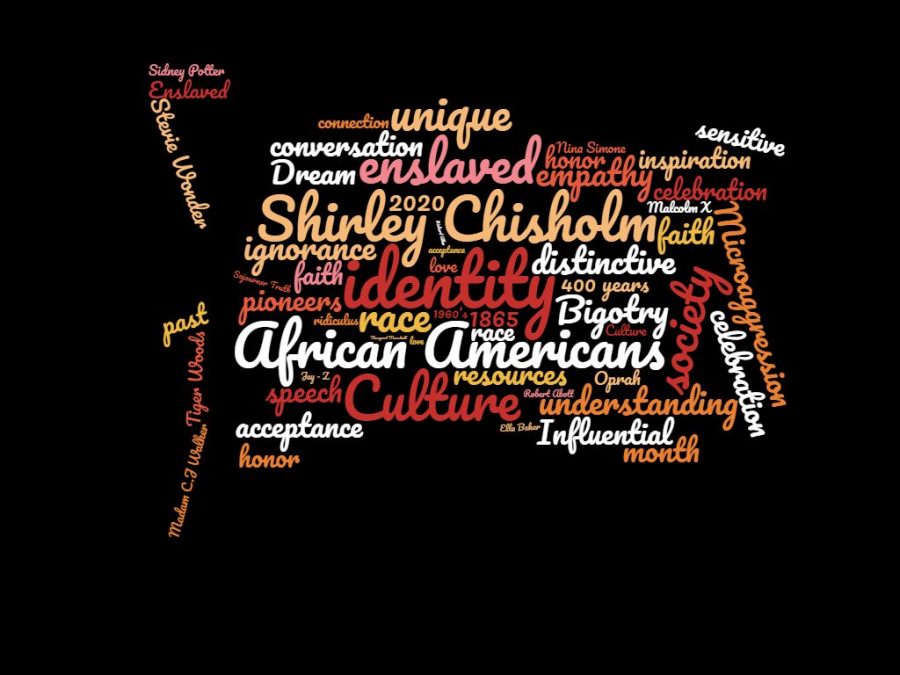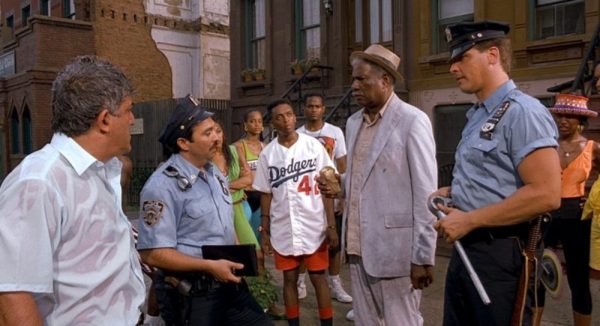Black history is American history, not just a month of the year
African Americans have struggled to fight for freedom and equality; their history should be taught year-round, not just celebrated in one month.
“I have a dream that my four little children will one day live in a nation where they will not be judged by the color of their skin, but by the content of their character. I have a dream today.”
Two scores, one decade, and seven years ago, a renowned American gave an eminent speech that would one day be celebrated as a turning point in not just African American history, but in American history as a whole. As Reverend Dr. Martin Luther King Jr.’s words ring in my ears, I am reminded of the same vicious cycle of hatred, discrimination, bias, and confusion that continues to circulate this nation 57 years later, threatening to unravel the progress made during the Civil Rights Movement.
However, it is never too late to teach and to act. It’s evident in the many prominent figures in history—acclaimed woman poet and author Maya Angelou, NASA Mathematician Katherine Johnson, former United States President Barack Obama, and so many others—that the African American experience is a rich contribution to what it means to be an American and how to achieve the American Dream.
Nonetheless, the history of America is distinctive. “White America must see that no other ethnic group has been a slave on American soil. That is one thing that other immigrant groups haven’t had to face,” King once said. “The other thing is that the color became a stigma. American society made the Negro’s color a stigma.” As a result, with the influx of new immigrants over the years, Latinos have also struggled with the burden of the color of their skin.
“When white Americans tell the Negro to ‘lift himself by his own bootstraps,’ they don’t look over the legacy of slavery and segregation,” King added. “I believe we ought to do all we can and seek to lift ourselves by our own bootstraps, but it’s a cruel jest to say to a bootless man that he ought to lift himself by his own bootstraps.”
Consequently, there are still limited resources for the African American community, meaning that in order to succeed, there are those who turn against their fellow brothers and sisters of color to help themselves. Thus, the “black struggle” takes on new dimensions. As both an African American and Asian American, I see these dynamics play out frequently.
Not to diminish the struggles of other people of color in America, but the African American experience is unique to the development of American history. That history shouldn’t be celebrated and taught about for only one month, and it most definitely shouldn’t be used as a mechanism to meet a particular quota, in an attempt to demonstrate a lack of ignorance and bigotry.
The history of “Black America” should be heavily incorporated into the teaching of American history because it is a central part of why the United States of America is America. Yet at the same time, it shouldn’t be institutionalized so that future generations become apathetic and indifferent to the special perspective African Americans have in this country.
Instead of victimizing enslaved people, we need to show people that they were survivors of a broken system. Through using Underground Railroad codes like the “Promised Land” and “Heaven” to allude to Canada or freedom, the “River Jordan” to refer to the Ohio River, the term “Shepherds” to acknowledge those who encouraged slaves to escape and escorted them, and “Moses” to honor Harriet Tubman, those who were enslaved demonstrated an incredible determination to fight their way to freedom.
Their resilience helped them escape the chains of bondage while providing hope in faith and God, which ironically, is the same faith their oppressors used to justify raping their women, emasculating their men, and depriving their children of an identity. This is only part of the story of their resilience: taking that faith, learning from the true lessons of it, and embracing the real message as their own.
As America loses the true motivation for celebrating Black History Month, race becomes a sensitive topic. Unable to accept her embarrassing racial past, America tries to hide her dark and grim history with African Americans.
Celebrating Black History is not about assigning blame. It’s about openly having a conversation: one that would lead to empathy—not sympathy or pity—for the opposite race and an understanding of one’s current role in society.
This is how we move forward. This is my dream today.
Your donation will support the student journalists of Watkins Mill High School. Your contribution will allow us to purchase equipment and cover our annual website hosting costs.

Grace Edwards is a senior at Watkins Mill High School and Co-Editor-in-Chief for The Current. She is a straight-A student who enjoys playing her violin....










